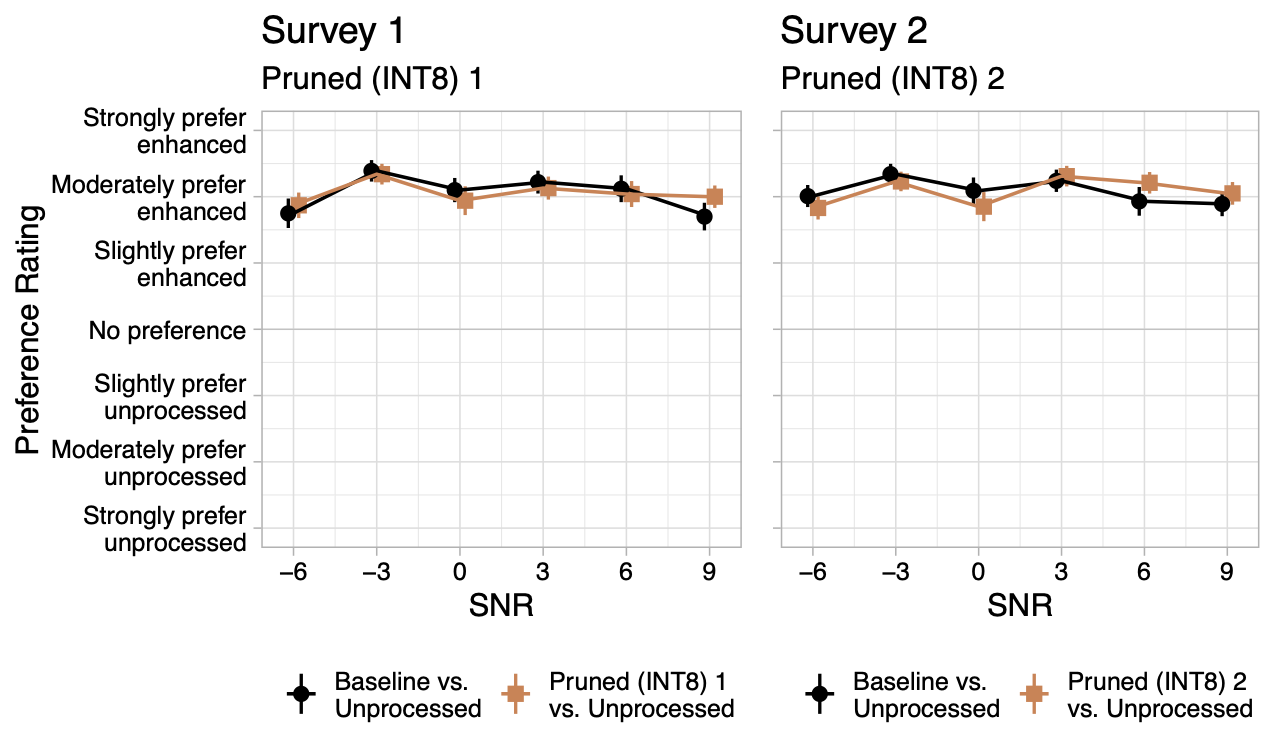TinyLSTMs: Efficient Neural Speech Enhancement for Hearing Aids
Modern speech enhancement algorithms achieve remarkable noise suppression by means of large recurrent neural networks (RNNs). However, large RNNs limit practical deployment in hearing aid hardware (HW) form-factors, which are battery powered and run on resource-constrained microcontroller units (MCUs) with limited memory capacity and compute capability. In this work, we use model compression techniques to bridge this gap. We define the constraints imposed on the RNN by the HW and describe a method to satisfy them. Although model compression techniques are an active area of research, we are the first to demonstrate their efficacy for RNN speech enhancement, using pruning and integer quantization of weights/activations. We also demonstrate state update skipping, which reduces the computational load. Finally, we conduct a perceptual evaluation of the compressed models to verify audio quality on human raters. Results show a reduction in model size and operations of 11.9$\times$ and 2.9$\times$, respectively, over the baseline for compressed models, without a statistical difference in listening preference and only exhibiting a loss of 0.55dB SDR. Our model achieves a computational latency of 2.39ms, well within the 10ms target and 351$\times$ better than previous work.
PDF Abstract

